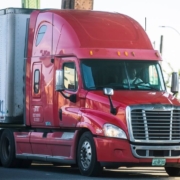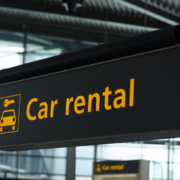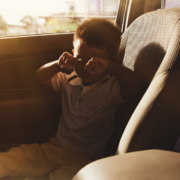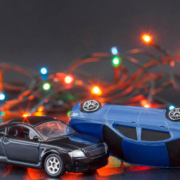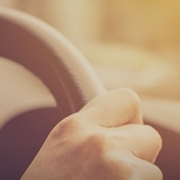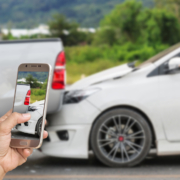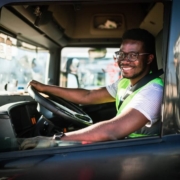Are Electric Vehicles More Dangerous in an Alabama Car Crash?
The landscape of Alabama’s roads is changing as an increasing number of Alabamians are making the switch to battery-powered cars. This shift, however, brings with it an important question: Are electric vehicles more dangerous in an Alabama car crash?
This question isn’t merely academic – it’s a pressing concern for drivers, lawmakers, and safety experts alike.
Understanding Electric Vehicle Technology
To grasp the potential dangers of EVs in crashes, we first need to understand what makes these vehicles tick. Electric vehicles come in several varieties:
- Battery Electric Vehicles (BEVs): Fully electric cars powered solely by rechargeable batteries.
- Plug-in Hybrid Electric Vehicles (PHEVs): Combine a gas engine with an electric motor that can be charged externally.
- Hybrid Electric Vehicles (HEVs): Use both a gas engine and an electric motor, but the battery is charged through regenerative braking, not by plugging in.
At the heart of every EV is a complex system of components that sets it apart from its internal combustion engine (ICE) counterparts:
- High-voltage battery systems: These powerful lithium-ion batteries store and provide the energy needed to run the vehicle.
- Electric motors: Convert electrical energy into mechanical energy to drive the wheels.
- Power electronics: Control the flow of electrical energy between the battery and motor.
These unique features create a different set of crash dynamics compared to traditional vehicles. For instance, the weight distribution in EVs is often lower and more centralized due to the battery placement, which can affect how the vehicle responds in a collision.
The placement of the battery pack, typically beneath the floor of the vehicle, creates a lower center of gravity. This design choice has significant implications for vehicle handling and crash dynamics. In normal driving conditions, it can enhance stability and reduce the risk of rollovers. However, in the event of a severe side impact or collision with a larger vehicle, this lower profile could potentially expose occupants to different injury patterns compared to traditional ICE vehicles.
Comparing EV and ICE Vehicle Safety
When it comes to overall safety ratings, electric vehicles often perform well in crash tests conducted by organizations like the National Highway Traffic Safety Administration (NHTSA). Many EVs boast impressive safety features and structural designs that can provide excellent protection in accidents.
However, there are some key differences to consider:
- Structural Design: As we have talked about, EVs often have a lower center of gravity due to their battery placement, which can reduce the risk of rollovers. However, this doesn’t eliminate the danger entirely – a rollover in an EV could still result in severe injuries due to the vehicle’s weight.
- Crumple Zones: The design of EV crumple zones may differ from ICE vehicles due to the absence of a large engine block. This can affect how energy is absorbed during a crash, potentially altering the pattern of injuries sustained by occupants.
- Weight Distribution: While the lower center of gravity in EVs can improve stability, the overall weight of these vehicles (often heavier than their ICE counterparts due to battery weight) can increase the severity of collisions, especially with lighter vehicles.
Specific Safety Concerns for EVs in Crashes
Electric vehicles present some unique safety concerns that drivers and emergency responders need to be aware of:
- Battery Fire Risks: One of the most publicized risks associated with EVs is the potential for battery fires, particularly in severe crashes. While relatively rare, these fires can be intense and difficult to extinguish, posing risks of severe burns and toxic smoke inhalation.
- Electrical System Hazards: The high-voltage systems in EVs can pose electrocution risks to occupants and first responders if damaged in a crash. While EVs are designed with safety systems to shut down the high-voltage system in a collision, malfunctions can occur.
- Silent Operation: The quiet nature of EVs, especially at low speeds, can increase the risk of pedestrian accidents. While many newer models are equipped with pedestrian alert systems, older EVs may lack this safety feature.
- System Malfunctions: In rare cases, damage to an EV’s electrical system during a crash could lead to loss of vehicle control, potentially causing or exacerbating an accident.
The risk of battery fires in EVs deserves particular attention. While the occurrence of such fires is statistically low, their potential severity makes them a significant concern. Lithium-ion batteries, when damaged or exposed to extreme heat, can enter a state called thermal runaway. This self-perpetuating reaction can lead to intense fires that are challenging to extinguish with traditional firefighting methods.
Alabama-Specific Factors Affecting EV Safety
The unique characteristics of Alabama’s environment and infrastructure play a significant role in EV safety:
Road Conditions and Infrastructure
Alabama’s diverse landscape, from urban centers to rural backroads, presents challenges for EV drivers. Poorly maintained roads can increase the risk of accidents, while limited charging infrastructure especially in rural areas could lead to stranded vehicles.
Extreme Heat
Alabama’s scorching summers can take a toll on EV batteries. High temperatures can accelerate battery degradation, potentially leading to reduced range and performance. In extreme cases, this could result in:
- Premature battery drainage
- Vehicles getting stranded without access to charging stations
- Sudden power loss while driving, increasing the risk of accidents
Severe Weather
Hurricanes and severe storms, common in Alabama, can pose additional risks for EVs. Flooding can damage electrical components, while power outages can leave EVs without charging options.
The impact of Alabama’s climate on EV performance and safety cannot be overstated. The state’s hot and humid summers create a particularly challenging environment for electric vehicles. High temperatures can significantly affect battery chemistry, leading to accelerated degradation and reduced efficiency. This not only impacts the vehicle’s range but can also affect its performance in critical safety systems.
Rural vs. Urban Driving
The disparities between rural and urban areas in Alabama create different risk profiles for EV drivers. Rural areas often lack adequate charging infrastructure, increasing the risk of stranded vehicles. Additionally, higher speeds on rural roads can lead to more severe accidents if an EV experiences a sudden loss of power.
Legal and Insurance Considerations for EV Accidents in Alabama
As electric vehicles become more prevalent on Alabama roads, they’re creating new challenges in the legal and insurance realms:
Alabama Traffic Laws and EVs
While Alabama’s traffic laws apply to all vehicles, there may be gaps in legislation specifically addressing EV-related issues. For instance, how does the law view an accident caused by sudden battery failure? These are questions that may need to be addressed as EV adoption increases.
Insurance Implications
EV owners in Alabama may face unique insurance considerations. The high cost of EV batteries and specialized repair needs could lead to higher premiums or special coverage requirements.
Liability in EV Accidents
Determining fault in EV-related accidents can be complex. For instance, if a battery fire causes injuries after an otherwise minor collision, questions of product liability may arise alongside traditional negligence claims.
Proving Causation
In personal injury cases involving EVs, establishing the link between the vehicle’s electric systems and the injuries sustained can be challenging. Expert testimony may be especially important in these cases to explain the technical aspects of EV operation and potential failure modes.
The legal landscape surrounding EV accidents in Alabama is still evolving, presenting unique challenges for personal injury attorneys and their clients. One of the key issues is the concept of product liability as it relates to EV-specific components. For instance, if a battery defect leads to a fire or unexpected power loss causing an accident, multiple parties could potentially be held liable – the vehicle manufacturer, the battery supplier, or even the charging station operator if a faulty charge was involved.
Navigating the Road Ahead
The question “Are electric vehicles more dangerous in an Alabama car crash?” doesn’t have a simple yes or no answer. The safety of any vehicle – electric or otherwise – depends on a multitude of factors, from the specific circumstances of a crash to the broader context of road conditions, weather, and driver behavior.
What’s clear is that as EV adoption grows in Alabama, so too does the need for:
- Enhanced driver education on EV operation and risks
- Updated emergency response protocols for EV accidents
- Continued research into EV safety, particularly in real-world conditions
- Potential legislative updates to address EV-specific safety concerns
As we move forward, it’s important that all stakeholders – from manufacturers and policymakers to drivers and legal professionals – work together to ensure that the transition to electric vehicles enhances rather than compromises road safety in Alabama.
At M. Adam Jones & Associates, we’re committed to staying at the forefront of these developments to provide the best possible representation for our clients. If you’ve been involved in an accident involving an electric vehicle in Alabama, our experienced team is here to help navigate the complex legal landscape and fight for your rights. Don’t face the road ahead alone – contact us today for a free consultation.
- Adam Jones,
Managing Partner
- Adam Jones & Associates, LLC
206 N. Lena St.
Dothan, AL 36303
Tel: 334-699-5599
Fax: 334-699-5588



